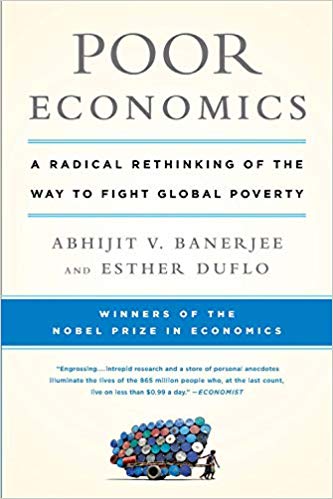Last week we could all read that Esther Duflo — along with her partner in her work and in life Abhijit Banerjee, as well as Michael Kremer – became the second female economist to win the Nobel Prize for her experimental approach to alleviating global poverty”. Such recognition must trigger the curiosity of many towards her approach to understand and tackle poverty, and what is so experimental about it.
Esther Duflo became the second female economist to win the Nobel Prize for her experimental approach to alleviating global poverty.
Actually the first part of this question is quite easy to answer: her approach is to apply rigorous research tools to validate the effectiveness of development interventions. That straightforward explanation makes the second part of the question even more intriguing: what is so experimental about this approach? Should this not be the standard procedure?
It might help to take a look at the health sector, where applying rigorous research tools to validate the effectiveness of medicines is indeed standard procedure. Usage of randomized controlled trials has been mainstreamed many decades ago. For example, the research party gives a medicine to group A and a placebo to group B and evaluate the differences in health situation. Nowadays, a doctor that prescribes a medicine that is not rigorously tested and validated to be effective can be suspended from performing their profession. And rightly so.
Now finally we will be able to test whether all the interventions that we develop (and developed) to alleviate poverty actually work.
So we must conclude that the approach of Esther Duflo is not experimental as such, the only experimental part is that she applies it in the context of alleviating poverty. We should be grateful that she started this ‘experiment’, because now finally we will be able to test whether all the interventions that we develop (and developed) to alleviate poverty actually work. From there, we can pick the most effective ones and get rid of the rest, including those that do more harm than good. Thanks to Esther Duflo, one day it will be possible to suspend charities that execute interventions that are not rigorously tested and validated to be effective. What a bliss would that be for all these communities that depend on development aid!
Thanks to this approach, one day it will be possible to suspend charities that execute interventions that are not rigorously tested and validated to be effective.
Actually you can start today with validating the effectiveness of the development interventions of your own organization. Just spend the next 1 hour searching for external literature that describes rigorous testing of your interventions. I am curious to hear your findings!
or

Maarten Mulder
Maarten has over a decade of working experience in both the NGO and the public sectors. Amongst others, he worked for the Dutch Ministry of Foreign Affairs. His fundraising skills range from mapping and profiling to proposal writing and grant management. Over the years, he also developed in-depth knowledge on how NGOs can increase their social impact.
A closer look at their work
Why do the poor borrow to save? Why do they miss out on free life-saving immunizations, but pay for unnecessary drugs? In Poor Economics, Abhijit Banerjee and Esther Duflo answer these questions based on years of field research from around the world. The book offers a radical rethinking of the economics of poverty and an intimate view of life on 99 cents a day. It shows that creating a world without poverty begins with understanding the daily decisions facing the poor.
stay up to date
We have at heart to be a resource to you. According to your preference, we will share insights, trainings, networking events and career opportunities that might be of interest for anyone from entry-level to seasoned professionals.
Contact
Phone
+31 (0)6 30 69 45 95
Address
Eursinge 8, 7935AB Eursinge (de Wolden), The Netherlands
228 East 45th Street, Suite 9E New York, NY 10017, USA
info@hvfc-international.com
Join us on
© 2024 HVFC International. All rights reserved.
HVFC ® is a registered trademark of HVFC International B.V.
